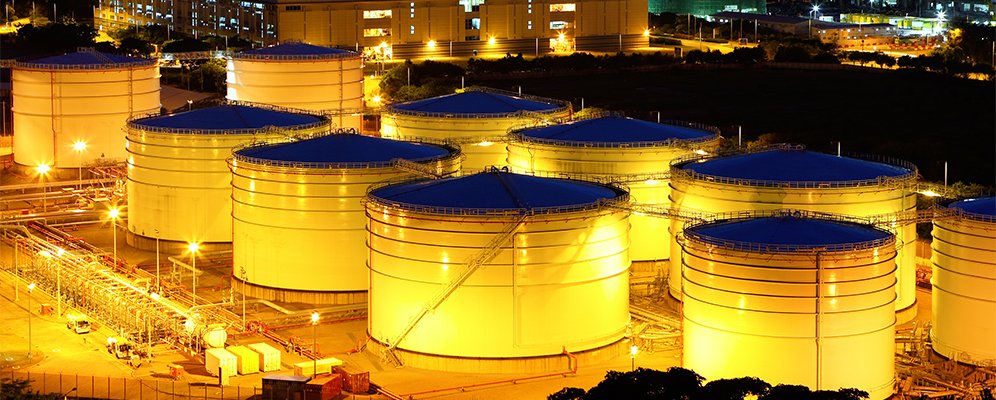
Advancements in Crude Oil to Chemicals Conversion
One of the most significant advancements in the conversion of crude oil into chemicals is the development of more efficient and sustainable processes. Traditionally, crude oil has been refined into fuels such as gasoline and diesel, with only a small percentage being used for the production of chemicals. However, with the growing concerns about climate change and the need to reduce greenhouse gas emissions, researchers and engineers have been working tirelessly to develop new methods that maximize the production of chemicals while minimizing the environmental impact.
One such method is the use of catalysts in the conversion process. Catalysts are substances that speed up chemical reactions without being consumed in the process. By carefully selecting and designing catalysts, scientists have been able to increase the efficiency of converting crude oil into chemicals. This means that more chemicals can be produced from the same amount of crude oil, reducing the need for additional resources and decreasing the overall carbon footprint.
Another significant advancement is the integration of renewable energy sources into the conversion process. Traditionally, the conversion of crude oil into chemicals has been energy-intensive and relied heavily on fossil fuels. However, with the increasing availability and affordability of renewable energy sources such as solar and wind power, researchers have been able to develop processes that utilize these clean energy sources. This not only reduces the reliance on fossil fuels but also helps to further reduce the carbon emissions associated with the conversion process.
Furthermore, advancements in technology have also played a crucial role in shaping the future of crude oil to chemicals conversion. The development of advanced sensors and control systems has allowed for more precise monitoring and optimization of the conversion process. This means that engineers can now fine-tune the process parameters to maximize the yield of chemicals and minimize waste. Additionally, the use of artificial intelligence and machine learning algorithms has enabled researchers to analyze vast amounts of data and identify patterns that can lead to further process improvements.
The future of crude oil to chemicals conversion is also being shaped by the increasing focus on sustainability and circular economy principles. As the demand for chemicals continues to rise, there is a growing need to find alternative feedstocks that are renewable and environmentally friendly. Researchers are exploring the use of biomass, waste materials, and even carbon dioxide as potential feedstocks for the production of chemicals. By utilizing these alternative feedstocks, the industry can reduce its reliance on crude oil and contribute to a more sustainable and circular economy.
In conclusion, the conversion of crude oil into chemicals is undergoing a transformative phase with exciting advancements and innovations. From the development of more efficient processes and the integration of renewable energy sources to the use of advanced technology and the focus on sustainability, the future of this field is promising. By embracing these advancements and continuing to invest in research and development, the manufacturing and energy industries can pave the way for a more sustainable and environmentally friendly future. Moreover, converting crude oil to chemicals opens up new avenues for innovation and economic growth. The chemical industry plays a crucial role in driving technological advancements and creating new products that improve our quality of life. By harnessing the potential of crude oil and transforming it into a wide range of chemicals, we can foster the development of new materials, medicines, and technologies.
One of the key advantages of converting crude oil to chemicals is the ability to recycle and reuse resources. As the world grapples with the challenges of waste management and limited natural resources, finding sustainable solutions becomes paramount. By utilizing crude oil as a feedstock for chemical production, we can effectively utilize its components and reduce waste. This not only reduces the strain on the environment but also contributes to a circular economy where resources are continuously recycled and reused.
In addition to environmental and economic benefits, converting crude oil to chemicals also has geopolitical implications. Many countries heavily rely on crude oil imports for their energy needs, making them vulnerable to fluctuations in oil prices and geopolitical tensions. By diversifying the use of crude oil and expanding into the chemical industry, countries can reduce their dependence on oil exports and strengthen their energy security.
Furthermore, converting crude oil to chemicals can also contribute to reducing greenhouse gas emissions. The traditional refining process for crude oil involves releasing significant amounts of carbon dioxide into the atmosphere. However, by converting crude oil into chemicals, alternative processes can be employed that have lower carbon footprints. For example, the use of catalysts and advanced technologies can enable the production of chemicals with reduced emissions. This shift towards cleaner production methods aligns with global efforts to mitigate climate change and reduce our carbon footprint.
In conclusion, converting crude oil to chemicals offers numerous advantages and opportunities. From reducing our dependency on fossil fuels to fostering innovation and economic growth, this conversion process holds immense potential. By embracing sustainable practices and exploring alternative uses for crude oil, we can create a more resilient and environmentally friendly future. 4. Carbon Capture and Utilization:
Another innovative approach in converting crude oil to chemicals is the implementation of carbon capture and utilization (CCU) technologies. These technologies aim to capture carbon dioxide (CO2) emissions from the conversion processes and utilize them as a feedstock for the production of valuable chemicals.
CCU technologies offer a dual benefit of reducing greenhouse gas emissions and creating a circular economy. By capturing CO2 emissions, we can prevent them from being released into the atmosphere and contributing to climate change. Instead, we can convert the captured CO2 into chemicals, thereby reducing the reliance on fossil fuels and promoting a more sustainable approach to chemical production.
The utilization of CO2 as a feedstock for chemical production also presents opportunities for the development of new value chains. Researchers and industry experts are exploring various chemical pathways to convert CO2 into high-value products, such as polymers, fuels, and building materials. This not only reduces the environmental impact of the conversion processes but also creates new economic opportunities.
5. Process Optimization and Digitalization:
In recent years, there has been a significant focus on process optimization and digitalization in the conversion of crude oil to chemicals. Advanced data analytics, machine learning, and artificial intelligence are being employed to optimize the various stages of the conversion processes.
Through the analysis of vast amounts of data, these technologies can identify areas of inefficiency and suggest improvements to enhance the overall performance of the conversion processes. This includes optimizing reaction conditions, improving catalyst selection, and reducing energy consumption.
Digitalization also enables real-time monitoring and control of the conversion processes, ensuring consistent product quality and minimizing waste. By integrating sensors and automation systems, operators can make informed decisions and respond quickly to any deviations or abnormalities in the process.
6. Sustainable Feedstock Selection:
The choice of feedstock plays a crucial role in the conversion of crude oil to chemicals. In recent years, there has been a growing emphasis on selecting sustainable feedstocks that have a lower environmental impact and are less dependent on fossil fuels.
One approach is the utilization of biomass feedstocks, such as agricultural residues, algae, or waste materials, as an alternative to crude oil. These feedstocks can be converted into bio-oils or bio-gas, which can then be further processed to produce chemicals. By utilizing biomass feedstocks, we can reduce the carbon footprint and promote a more circular and sustainable economy.
Additionally, the development of advanced technologies, such as carbon-neutral hydrogen production, is enabling the use of hydrogen as a feedstock for chemical production. Hydrogen can be produced from renewable sources, such as water electrolysis powered by renewable energy, and used as a clean and sustainable alternative to traditional hydrocarbon feedstocks.
In conclusion, the innovations in converting crude oil to chemicals are transforming the industry towards a more sustainable and eco-friendly future. Advanced catalytic processes, bio-based conversion technologies, the integration of renewable energy sources, carbon capture and utilization, process optimization and digitalization, and sustainable feedstock selection are all contributing to reducing the environmental impact and improving the efficiency of chemical production from crude oil. These innovations not only address the challenges of climate change and resource depletion but also create new economic opportunities and drive the transition towards a circular economy. Furthermore, the advancements in converting crude oil to chemicals can also lead to a more decentralized energy system. Traditionally, energy production has been centralized, with large power plants generating electricity and distributing it to consumers. However, with the ability to convert crude oil to chemicals, smaller-scale energy production becomes more feasible.
Imagine a future where every household has its own mini power plant, utilizing the conversion process to produce energy from crude oil. This would not only provide individuals with greater control over their energy consumption but also reduce the strain on the existing energy infrastructure. Additionally, by incorporating renewable energy sources into these mini power plants, such as solar panels or wind turbines, households can further decrease their reliance on fossil fuels and contribute to a cleaner and more sustainable energy system.
Moreover, the conversion of crude oil to chemicals can also have a significant impact on transportation. As the world moves towards electric vehicles (EVs) and other forms of sustainable transportation, the demand for clean energy sources will continue to rise. By integrating the conversion process into the production of EV batteries, for example, we can ensure that the entire lifecycle of the vehicle is environmentally friendly.
Additionally, the conversion of crude oil to chemicals can also enable the production of alternative fuels, such as hydrogen or biofuels. These fuels have the potential to replace traditional gasoline and diesel, reducing greenhouse gas emissions and improving air quality. With the growing concern over climate change and the need to transition to a low-carbon economy, the development and implementation of alternative fuels will play a crucial role in achieving these goals.
In conclusion, the innovations in converting crude oil to chemicals have far-reaching implications for both the manufacturing and energy sectors. From creating sustainable and eco-friendly products to revolutionizing energy production and transportation, the possibilities are endless. By embracing these advancements and investing in research and development, we can shape a future that is not only economically prosperous but also environmentally sustainable.



































